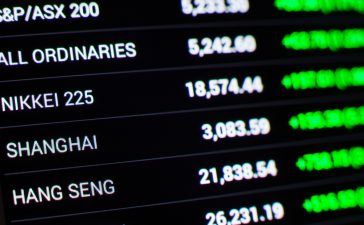The MSCI Asia-Pacific index’s forward 12-month P/E stood at 12.1 at the end of last month, which was the region’s cheapest valuation since March 2020, Refinitiv data showed
Valuations of Asian equities dropped for a third straight month in June and hit their lowest since the start of the pandemic, as regional equity markets plunged on concerns over a global recession and aggressive rate hikes by major central banks.
The MSCI Asia-Pacific index’s forward 12-month price-to-earnings ratio (P/E) stood at 12.1 at the end of last month, which was the region’s cheapest valuation since March 2020, Refinitiv data showed.
Concerns about earnings downgrades and rising cost of capital have driven down valuations, though earnings estimates, we feel, are close to bottoming out, said Manishi Raychaudhuri, Asia-Pacific equity strategist at BNP Paribas.
Analysts downgraded the MSCI Asia-Pacific Index’s forward 12-month earnings estimates by 2.97% in June, compared with a 0.85% upgrade in May.
The P/E ratios of South Korean, Hong Kong and Taiwan equities were at 8.48, 9.94 and 10.02, respectively, the lowest in the region.
Meanwhile, Chinese shares’ P/E ratio surged to 10.08 from 9.38 a month ago, as COVID-19 restrictions eased.
Unlike the rest of the global economy that we expect to slow down in 2023, China’s economy/corporate earnings will likely see a recovery aided by greater support in the form of fiscal/monetary policies, said Nomura in a report this week.
The Shanghai Composite Index gained 6.66% last month, despite the MSCI Asia-Pacific index and the MSCI World index’s steep losses of 6.78% and 8.44%, respectively.
The P/E ratios for Indian, Thai and Malaysian equities stood at 18.02, 14.54 and 13.71, respectively.
The fact that Asian earnings estimates have already been downgraded, and therefore are likely to remain relatively stable relative to their DM counterparts, convinces us that the ‘cheap looking’ valuations are actually cheap, BNP Paribas’ Raychaudhuri said.





